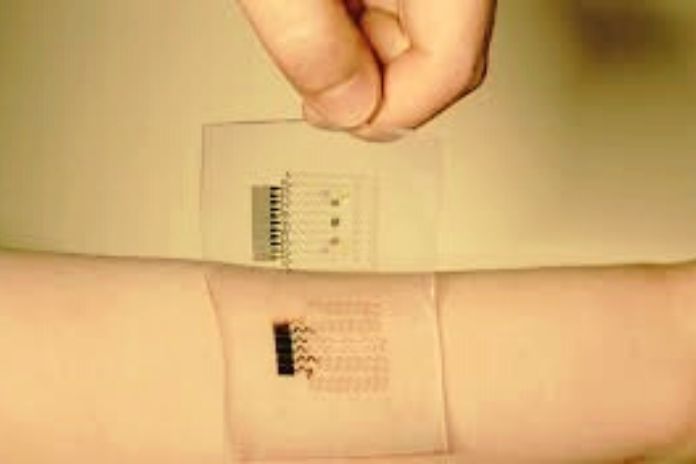Researchers have developed an electronic tattoo that continuously measures blood pressure. It should surpass all previous systems, in terms of accuracy. Technology has been a game changer in medicine for years. While we can mainly observe advances in technical devices and applications in everyday life, artificial intelligence (AI) is gradually finding its way into many hospitals and practices.
Many systems achieve extraordinary results because new technologies and AI make traditional healing and diagnostic methods safer and more efficient. Recent example is the University of Texas at Austin and Texas A&M University.
Researchers have developed an electronic tattoo to revolutionize the diagnosis of cardiovascular problems because the collection of reliable data on blood pressure is considered a decisive factor for heart health but has proven to be complicated for decades.
Electronic Tattoo Allows For More Accurate Diagnoses
In most cases, previous methods only collected data during measurement. The patients came to be examined, and doctors measured their blood pressure and analyzed the results. However, depending on the time and situation, our blood pressure varies, and so does our health.
However, the electronic tattoo should provide a remedy. However, it does not go under the skin like a classic tattoo. Instead, they are almost light sensors that envelop the skin with the help of a sticky mass.
The built-in sensors, in turn, send current surges through the body and continuously collect data. In the end, an overall picture can be derived from the individual measurements.
To Date, Smartwatches Are Not A Serious Competition
The tattoo is also made of graphene. The material is fragile and resistant, while at the same time, its properties allow it to be worn comfortably on the body. An intelligent algorithm also analyzes the results of each measurement and sounds an alarm if necessary.
Experts still consider it unlikely that smartwatches will replace traditional devices such as blood pressure monitors. The measurement used uses light and a sensor to measure movement in the blood.
However, this method is still relatively imprecise. Also, smartwatches move continuously on the wrist. The measurements are therefore difficult to compare. The electronic tattoo, however, could prevail sooner or later. The results are already so accurate that other commercially available devices can hardly keep up.
ALSO READ: Factoring: How Sales Financing Can Help To Overcome The Crisis

